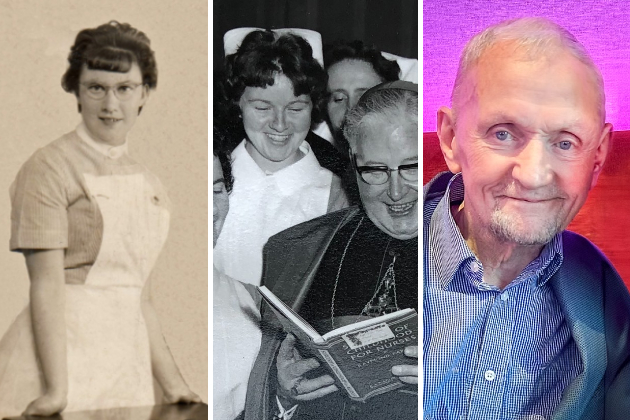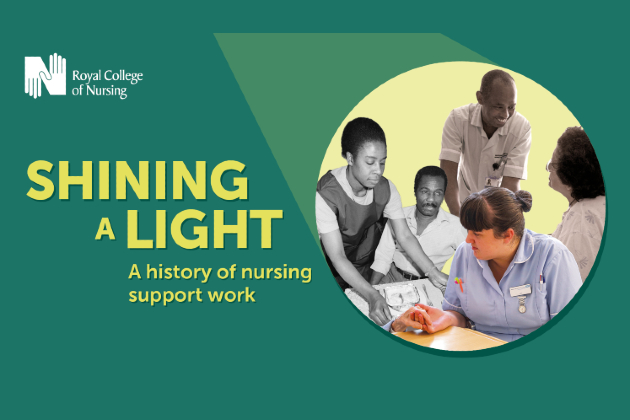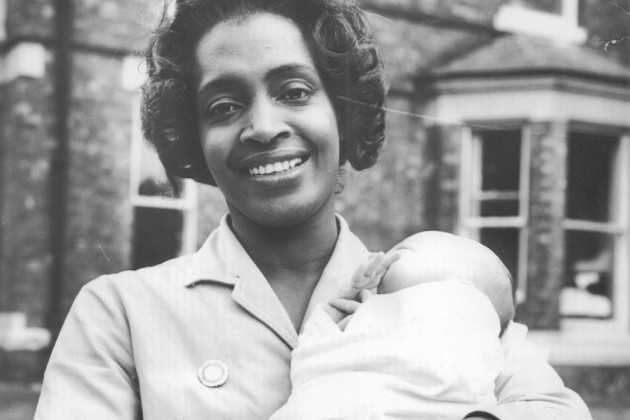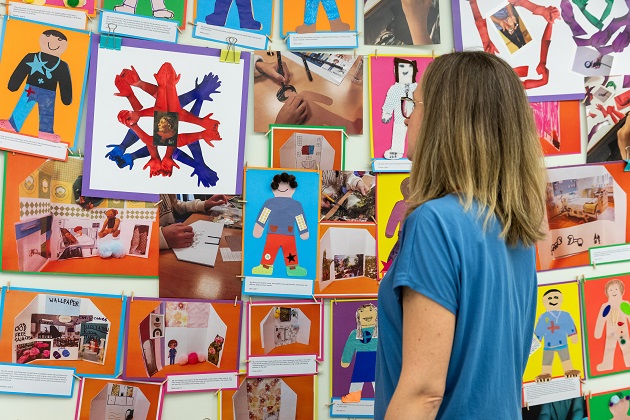By 1971, more than 30,000 Irish-born nurses were employed by the NHS. Making up around 12% of all nursing staff in the NHS, this made Irish people the largest migrant group working in the health service at that time.
However, their contributions have rarely been publicly celebrated. In the words of one Irish nurse, they have slipped “under the radar”.
Shortly after the NHS was created in 1948, it led an active recruitment campaign to attract Irish students to train and work as nurses. Here are the stories of some of the nurses who made the move.
Noreen: sailing towards Surrey
Noreen was born in 1942 and grew up on a small farm alongside a big family in West Cork.
She was keen to explore nursing opportunities so went with her mum to Dublin where she had an interview to be a nurse at a hospital in Surrey. She passed and found herself setting off on a ship from Cork Harbour to begin her career. It was 1961, she was 18 years old, and sailing into a big adventure.

It wasn’t long until Noreen was taking on significant responsibilities in the hospital. She worked in many roles, including looking after patients on her own at just 19, and shifted to night duties by her second year.
We depend on people from other countries
Over 40 years, Noreen’s NHS career went from strength to strength, and her final role was as general manager of medicine, overseeing departmental budgets and recruitment. Noreen believes nurses from outside the UK have played crucial roles across the NHS, and she went overseas herself to recruit staff.
“I went to the Philippines three times, recruiting nurses for the hospital I was working in. Staffing has always been a challenge in British hospitals. We depend on people from other countries,” she says.
International recruitment
Dianne Yarwood, Chair of the RCN History of Nursing Forum, says:
“When the NHS was created, there was an estimated shortage of more than 40,000 nurses. So, the government set about recruiting potential students from the Caribbean, South East Asia and Ireland.
“Recruits were offered a salaried training, a professional qualification recognised across the globe, respectability, accommodation and meals. However, the reality for many included long working hours, exhausting night duties, and home sickness.
“But the sense of community for those young and mainly female students, living together in nurses’ homes, sustained them. Friendships were made, persisting to this day. A significant number of these Irish nurses spent their whole careers working in Britain, to the benefit of the NHS.”
Josie: a proud A&E nurse
Born in Roscommon in the west of Ireland during the Second World War, Josie knew from an early age she wanted to be a nurse. In 1958 she boarded a train to Dublin with a plan to achieve her dream.
She was alone and had never before been to the Irish capital, but she was determined.
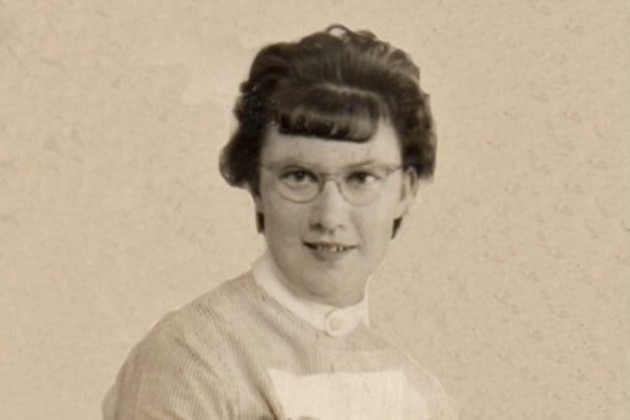
Josie trained at the School of Nursing in Harrogate for three months. She remembers being treated “very well, but like a child,” with lights out at 10pm and rules about stripping the bed, sitting down for breakfast and cleaning for an hour – all before lessons. It didn’t put her off and she continued her studies until she qualified. She went on to spend 30 years as a night sister at A&E in St James’s Hospital, Leeds.
I’m proud I worked in A&E and made such a difference
It’s a setting that proved eye-opening for Josie. Nurses had to be assertive, dealing with all types of patients, including drunk people. She adds: “I’m proud I worked in A&E and made such a difference. I used to start night shifts thinking how I was responsible for all of that night’s patients involved in accidents in Leeds.”
John: facing prejudice
John was born in Dublin in 1933 and served in the Irish Army before leaving his homeland in 1956.
On arrival in Liverpool, he joined his mother and siblings and initially worked as a tailor. A few years later, he spotted a newspaper advert for psychiatric training and applied. John remembers sometimes receiving negative comments from the public about being Irish, because of political tensions at the time.
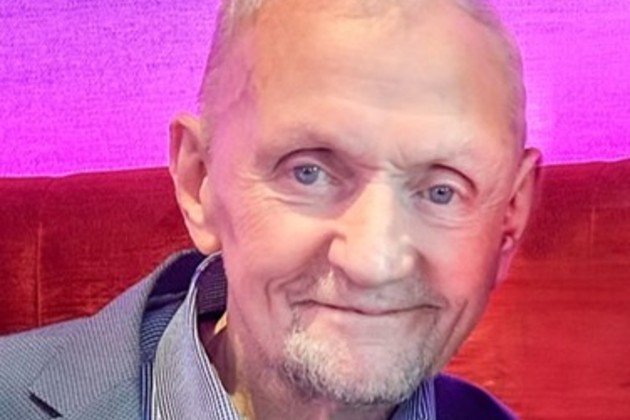
“In the late seventies and eighties, there was a lot of trouble in Northern Ireland. I think some of the Irish got a bit of a backlash from people because of that, myself included. People made little slurs about the Irish because of The Troubles, the IRA and all that. A woman on the ward I was working on made out that I was to blame for it. She made snide remarks about the situation, and the IRA bombings. I think it rebounded on the innocent Irish people here,” he says.
He later moved into general nursing and his last nursing role was in a hospice in Liverpool after a 30-year career.
Find out more
- Read more about nurses from the island of Ireland who served in the Second World War.
- All the latest from the RCN History of Nursing Forum.
- Read the latest RCN Magazine History features.


